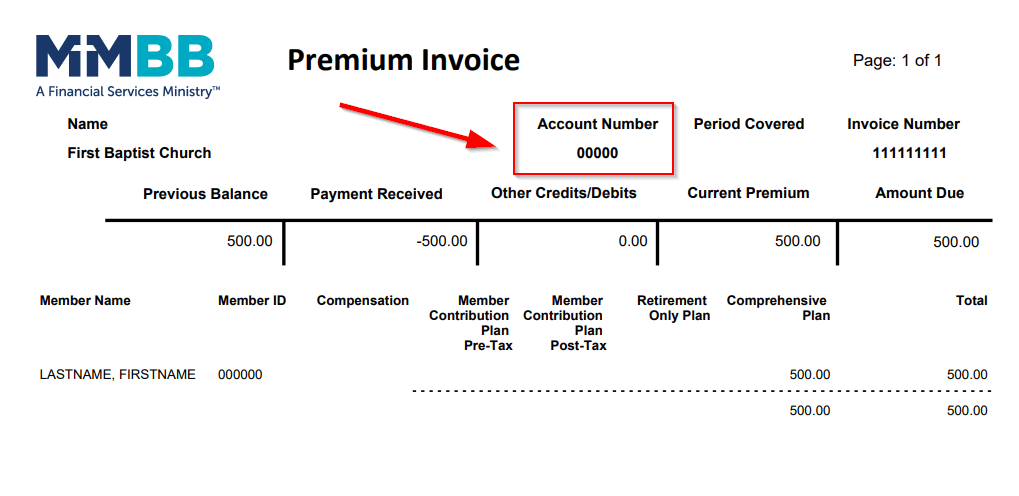Prior to receiving the grant from the Lilly Endowment, Inc. at the end of 2015, MMBB conducted a study on financial health amongst members and non-members. We discovered that debt stress was nearly twice as high amongst clergy persons as the average American.
Each of the three initiatives of our Lilly grant, the Financial Wellness Project for Pastoral Leaders and Their Congregations addresses strategies for reducing debt, however, we understood that one of those initiatives needed to focus on the stress that is caused when people feel overwhelmed by debt. We knew that there were spiritual, psychological and emotional factors about debt stress which not only affected the pastoral leaders but also their families and congregations.
The Pilot Project on Debt Stress was designed to address and begin to alleviate the issues that can hinder clergypersons from bringing their best selves to their ministries. The second session was held in Fall 2017 in the Westchester area where 13 MMBB members and several spouses attended the 1-1/2-day workshop. The content emphasized three areas:
- the spiritual foundations of healthy attitudes and behaviors regarding finances, with a special focus on trusting God’s sufficiency and reflecting on this realistically and practicing generosity as a spiritual discipline
- the impact of family of origin and personal history factors in attitudes and behaviors regarding finances
- financial skills, such as budgeting, tracking cash flow, projecting for the future, and managing debt effectively.
At the end of the workshop each pastoral leader and spouse were matched with a coach who provided six coaching sessions over a twelve-month period, via phone or video conference. All the coaches have had considerable coaching experience and were reassured that their responsibility was coaching and not financial guidance. Financial planning assistance is available to all participants as a benefit of their MMBB membership. As the first group of participants have recently completed their year of coaching, we thought it would be useful to sit down with three of the coaches to discuss what coaching is and how it can make an impact on a person’s life. Rev. Margaret E. Lewis (Maggie) is Executive Director of The Center for Career Development and Ministry in Nashua, NH. Olu Burrell is the People Strategy Consultant & Leadership Coach for Spoken IV Solutions LLC in Washington D.C. and Vincent Schera (Vince) is Chief Human Resources Officer at MMBB. Their responses may cause you to think seriously about the ways in which you may benefit from working with a coach.
What is coaching and how does it differ from mentoring? How can working with a coach help a person to address their personal and/or professional goals?
Maggie: The best way to describe the difference is that the coaching relationship is more collaborative than mentoring. A mentor might assume some area of expertise or professional competence that the mentees haven’t yet achieved. A coach would more likely partner with clients to help them identify and build upon their own wisdom and strengths to achieve their goals. There can be some overlap between coaching and mentoring but this is the basic distinction I see.
Olu: Coaching differs from mentoring in that coaching is a future-focused process based upon the client’s self-identified agenda and energy while mentoring focuses on the relationship between the mentor and mentee in that the agenda is for the mentee to glean wisdom from the mentor, who has—for the most part—traveled a similar path. The value of working with a coach to address one’s personal and/or professional goals comes in the form of a professional who uses careful questioning and direct communication informed by the stories and beliefs shared by a client.
Vince: Mentoring primarily focuses on specific tasks and objectives that a person may be struggling with and for which someone who has encountered similar challenges can offer their advice, counsel and expertise. Coaching in essence, is a holistic approach as general goals and overall areas of development are explored with the client by active listening and posing powerful questions. The overall objective in coaching is to bring forth an awareness level in which the client realizes what needs to be done to move forward.
Those are really helpful insights. What is one of the primary obstacles you encounter that people need to overcome in order to address their personal and/or professional goals?
Olu: The primary obstacle I encounter lies in the stories we tell ourselves and subsequently choose to believe. People are experts in self-protection and projection. The realities we live in are often prisons of perception and they often clash with what could be because we often fail to challenge our assumptions.
That is a powerful statement. We may pay a price when we are unable to move beyond the stories we have consciously or unconsciously chosen to believe about ourselves.
Olu: Yes, that can be the case. Most of these narratives find their origins at developmental points in our lives that we have been repeating and reinforcing ever since.
Vince: I agree with you, Olu. I’ve found that people become immersed in their underlying assumptions which in turn become their basis of fact. A key question that I have found myself asking a client on numerous occasions has been “What’s stopping you”? After they give this question careful thought, they become aware that their hesitancy in taking a specific action is due to their assumptions of how others will react or what they think would happen if they do take this action.
So, although we may not always be aware of them, we fall prey to the underlying assumptions and allow them to become our reality.
Vince: Definitely. As people are able to examine these assumptions, they are enabled to overcome these road blocks that they had erected.
Maggie: Frankly, I also find that many people are resistant to putting themselves first on the list. I find clergy so often put other people’s needs ahead of their own and don’t make the time to focus on themselves and their own needs and goals.
I am sure many people who are reading this article recognize themselves in that statement.
Maggie: We’ve all heard about putting the oxygen mask on ourselves first during an airplane emergency before trying to help others. We know this but we don’t always do this.
What are some or one of the signs that a person or couple you are working with has reached a turning point in the process?
Vince: There are many signs that signal a breakthrough. The primary indicator for me is the sense of positive energy that a client brings to the coaching session.
Maggie: I’ve observed that also, Vince. The coaching process can be circuitous; progress can be incremental and barely noticeable until the delicious “Aha Moment”. It’s like finding your way through a thick forest and thinking you’re never going to find your way out when suddenly there is a small clearing ahead and a narrow stream of light is shining through.
Vince: That’s a great way to describe the process. And, the “Aha Moment” may be as simple as a client having a confident demeanor when presenting issues for discussion that they did not have before. There may also suddenly be a high comfort level in the action plan they establish for themselves going forward.
Olu: One of the signs of a turning point is listening to a client talk about their way forward with possibility, hope and determination; when they overtly own their responsibility in the choices they make and resolve to challenge previously-held assumptions that have been holding them back.
Can you share a recent success story in which you feel the coaching process made a difference?
Maggie: Oh yes! I recently did financial coaching with a minister who had significant debt, partly due to unplanned medical expenses and partly due to not having adequately understood paying quarterly estimated federal taxes. The person was absolutely overwhelmed and didn’t even know where to begin to dig themselves out of this debt. We took it step by step, little by little. The most important thing we did was to put $1,000 into an Emergency Fund. It was hard finding that money in their limited budget and frustrating not to use it to pay down some debt. But I knew they would never achieve financial solvency if they didn’t have money set aside for emergencies. One day I received an email from the person after they had just encountered an unexpected major expense. They said, “First, I panicked and wondered how I would ever pay for it. And then I remembered that I had an Emergency Fund! Problem solved!” The person was reclaiming their power and flexing their newfound financial competence muscles. It was a good day.
Olu: I had a client who seemed to have a negative association with budgeting and living frugally. Through the coaching process it was revealed that there was a long-held fear of feeling/being poor and how that belief contributed to an aversion to mindful spending. Through our engagement I was able to challenge the language used in the story they told themselves. A simple reframing like moving from “I have to save” to “I get to save” enabled them to see things from an appreciative standpoint where they were being a ‘driver’ of behavioral change instead of a ‘passenger’ to whom change happened. As a result, their face brightened as they perked up, and their outlook became quite positive.
Vince: I recall that during a recent coaching engagement I helped my clients identify the underlying issues that were preventing them from addressing what they believed was their primary area of concern. By vetting and assessing their underlying assumptions they were able to develop meaningful action plans and proceed with confidence. They were also able to prioritize and avoid conflating their objectives and give themselves kudos for what they had accomplished.
Those are refreshing stories that can be a source of hope as we face the obstacles, often self-imposed, that hold us back from achieving our goals. Are there any parting thoughts you want to share?
Olu: I want to point out that in Appreciative Inquiry2, we use a phrase, “words create worlds.” The words we speak often becoming a self-fulfilling prophecy in our lives, so I encourage clients to speak LIFE.
Maggie: One of my colleagues at the Center for Career Development and Ministry often says that coaching helps you live brave. I love that. Coaching can help turn vague ideas into concrete action steps that help you to live brave.
Rev. Margaret E. Lewis is Executive Director of The Center for Career Development and Ministry in Nashua, NH.
Olu Burrell is the People Strategy Consultant & Leadership Coach for Spoken IV Solutions LLC in Washington D.C.
Vincent Schera is Chief Human Resources Officer at MMBB.
2Appreciative Inquiry (AI) is a model that seeks to engage stakeholders in self-determined change. https://en.wikipedia.org/wiki/Appreciative_inquiry
Back to Financial Resource Center









